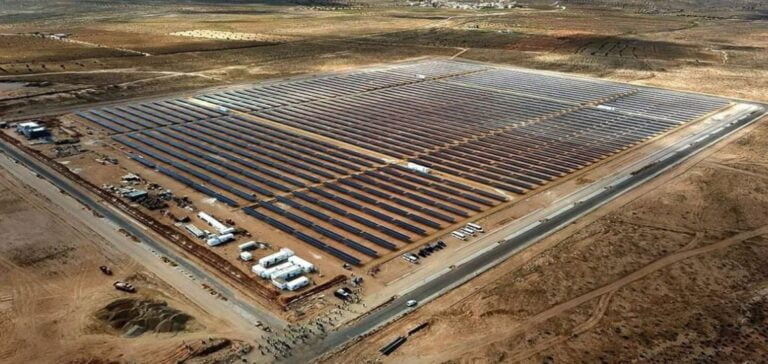AMEA Power, one of the Middle East’s leading renewable energy companies, has announced the official launch of the 120 MWp solar photovoltaic project in Kairouan, Tunisia. This initiative, financed by the International Finance Corporation (IFC) and the African Development Bank (ADB), represents a significant step forward in Tunisia’s energy landscape.
Financial and technical details
The $86 million project was awarded to AMEA Power via an international public procurement program launched by Tunisia’s Ministry of Industry and SMEs. This is the first concession project to reach financial close. It marks a turning point for private investment in renewable energies in Tunisia.
Impact on the economy and the environment
The Kairouan solar project is expected to generate 222 GWh of clean energy per year, powering more than 43,000 homes. It is expected to offset 117,000 tonnes of carbon emissions over its lifetime. This plant will help reduce Tunisia’s dependence on oil and gas imports. It will also support the government’s target of 35% renewable energy in its energy mix by 2030.
Collaboration and community involvement
The concession and 20-year power purchase agreements with Société Tunisienne de l’Électricité et du Gaz (STEG) were signed in June 2021 and ratified by the Tunisian government in May 2022. AMEA Power is also committed to working closely with local communities in the governorate of Kairouan. The company’s commitment to the region’s socio-economic development has been reinforced.
Future prospects and expectations
Commissioning of the solar power plant is scheduled for the fourth quarter of 2025. Once operational, it will be AMEA Power’s first operating asset in Tunisia, paving the way for future renewable energy projects in the country. Hussain Al Nowais, President of AMEA Power, emphasized the importance of this project, saying, “By taking advantage of its renewable energy resources and its strategic position between North Africa and Europe, Tunisia can become a prime location for green energy and trade.”
This project is more than just an energy development. It symbolizes the future of renewable energies in Tunisia and international cooperation for a more sustainable future. The prospects for growth and development in Tunisia’s renewable energy sector are promising, and the Kairouan solar project is a crucial step towards this energy transformation.






















